|
|
|
|
|
|
|
|
Today's Congressional Action:
The House is in session and expected to consider non-Arctic legislation. The Senate is not in session.
|
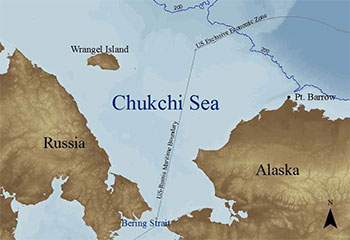 Wreckage of Lost Whaling Ships Discovered Off Alaska's Arctic Coast. Wreckage of Lost Whaling Ships Discovered Off Alaska's Arctic Coast. When pack ice shifted to trap 33 commercial whaling ships off Alaska's Arctic coast in the fall of 1871, more than 1,200 people aboard the vessels had to be rescued. The costly and much-publicized debacle was, according to many historians, the beginning of the end for the Alaska commercial whaling industry. A century and a half later, archaeologists studying the floor of the Chukchi Sea near the Inupiat village of Wainwright have found the wreckage of what appears to be two of the lost ships, the National Oceanic and Atmospheric Administration announced Wednesday. Alaska Dispatch News
Overcoming Hurdles to Climate Change Adaptation in the Arctic. Outdated land management practices, a dearth of local decision-making bodies with real powers, a lack of long-term planning, along with long-standing educational and financial disempowerment and marginalization are among the hurdles the prevent Arctic communities from adapting to climate change, says a McGill-led research team. But Arctic communities inherently have the capacity to adapt to significant climate change. That's partly because they are used to accepting a changeable and uncertain climate. What currently limits this ability, however, are a range of non-climatic factors that vary from one society to the next. ScienceCodex
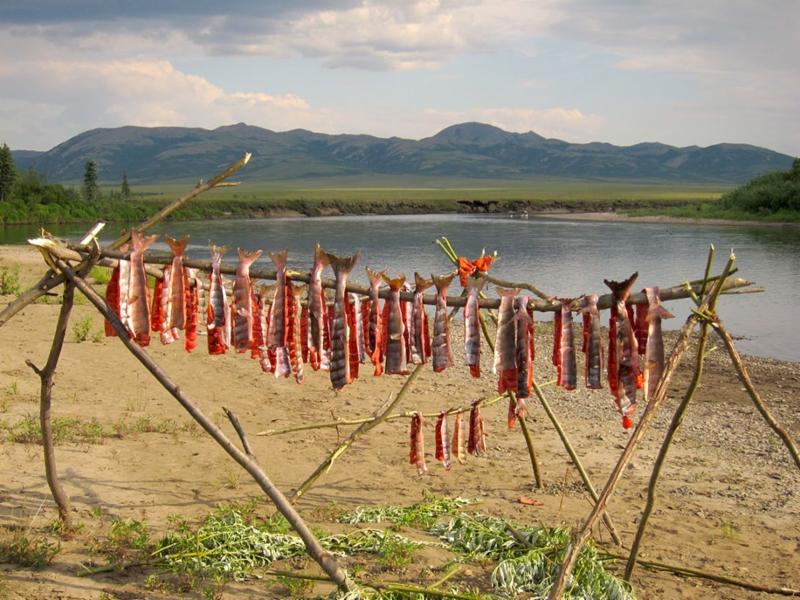 Grant for Salmon Research in Arctic Regions. Grant for Salmon Research in Arctic Regions. "The award means that more people see the importance of finding out more about the effects of Arctic conditions and that we can start the study", said project leader Ragna Heggebø, researcher at EWOS Innovation. The expert panel assessed the funding application and the project as strong professionally, exiting, and very important for the region. World Fishing
Arctic Ice Travels Fast, Carrying Pollution. Climate change could turn the Arctic Ocean into a high-speed ice superhighway. Chunks of sea ice in the Arctic are becoming thinner as old ice melts. The new ice that's replacing it travels farther and faster than the older ice had. And as the younger ice travels, it carries dirt, organisms and pollution along for the ride, new research shows. Researchers have been tracking the movements of Arctic ice for several years. They noticed that the area covered by ice making the trek from one side of the ocean to the other has grown larger and larger. That movement means that far-flung reaches of the Arctic are becoming more connected, notes Robert Newton. He's an oceanographer at Columbia University's Lamont-Doherty Earth Observatory in Palisades, N.Y. And he described his team's new findings here, December 16, at the American Geophysical Union's fall meeting. Science News for Students
|
Legislative Action
No Arctic legislation was formally considered yesterday.
|
|
Future Events
"Arctic Matters" day at the National Academy of Sciences, January 14th, 2016 (Washington, DC, USA)This symposium is part of an ongoing initiative of the National Academies of Science Polar Research Board to expand public understanding of why the dramatic changes affecting the Arctic region ultimately matter to us all. The agenda features engaging presentations and discussions with top Arctic science and policy experts, and displays and interactive exhibits that illustrate Arctic change and its global impacts. The event is free and open to the public. There are sponsorship opportunities, and a call for exhibitor applications. Audience space is limited, so register today; and please encourage your friends, neighbors, and colleagues to participate-as our goal is to reach well beyond the small circle of specialists who typically attend Arctic-themed events in the DC area.
The U.S. Arctic Research Commission is the primary sponsor of this event.
SMARTIC Game Night, January 14, 2016 (Washington, DC). As climate change drives rising temperatures, sea ice is decreasing and the Arctic Ocean is opening up, creating new challenges and opportunities for stakeholders in the region. The Strategic Management of Resources in Times of Change (SMARTIC) activity is an interactive simulation where players take on the role of key Arctic stakeholders, setting resource conservation and development priorities based on changing conditions. Come and practice your negotiation skills as you try to resolve conflicts, manage competing interests, and respond to crises in the Arctic Ocean region! SMARTIC is a project of the PoLAR Partnership. The PoLAR Partnership is supported by a grant from the National Science Foundation (DUE-1239783).
ARCUS Arctic Research Seminar Series: Dr. Julie Brigham-Grette, January 15, 2016 (Washington, DC, USA and Webinar).The ARCUS Arctic Research Seminar Series brings some of the leading Arctic researchers to Washington, D.C. to share the latest findings and what they mean for decision-making. The seminars are open, and will be of interest to Federal agency officials, Congressional staff, NGOs, associations, and the public. The inaugural seminar (Friday, 15 January at 12:00 - 1:00 p.m. Eastern Time) will be presented by Dr. Julie Brigham-Grette, Geosciences Professor at the University of Massachusetts, and Chair of the U.S. National Academy of Sciences Polar Research Board.
East-West Arctic Cooperation During Times of Global Tension, January 15, 2016. Can the United States and its allies cooperate with Russia, China and other Asian nations during times of tense relations - or will cooperation on common interests in the Arctic succumb to the more familiar geopolitical tensions of the Cold War era? Stimson will host this event. Vice Admiral Charles Michel, the Vice Commandant of the United States Coast Guard, will deliver a keynote speech on the new Arctic Coast Guard Forum established to promote maritime safety and security cooperation in the Arctic. Following VAdm. Michel's presentation, a panel of experts will discuss the progress and challenges to future East-West cooperation in the Arctic region.
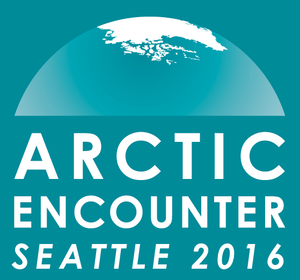 Building upon the preceding Arctic Encounter event in Paris, the third annual Arctic Encounter Symposium (AES) in Seattle, Washington will convene policymakers, industry leaders, and leading experts to confront the leading issues in Arctic policy, innovation, and development. The AES mission is to raise awareness, engage challenges, and develop solutions for the future of a region and a people. The two-day program includes two keynote luncheons, expert plenary sessions, break out sessions, a networking cocktail reception and seated dinner. A closing reception will take place at the conclusion of the program. Building upon the preceding Arctic Encounter event in Paris, the third annual Arctic Encounter Symposium (AES) in Seattle, Washington will convene policymakers, industry leaders, and leading experts to confront the leading issues in Arctic policy, innovation, and development. The AES mission is to raise awareness, engage challenges, and develop solutions for the future of a region and a people. The two-day program includes two keynote luncheons, expert plenary sessions, break out sessions, a networking cocktail reception and seated dinner. A closing reception will take place at the conclusion of the program.
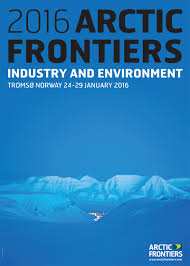 2016 Arctic Frontiers, January 24-29, 2015 (Tromso, Norway).The Arctic is a global crossroad between commercial and environmental interests. The region holds substantial natural resources and many actors are investigating ways to utilise these for economic gain. Others view the Arctic as a particularly pristine and vulnerable environment and highlight the need to limit industrial development. Arctic Frontiers 2016 will discuss the balance between resource utilisation and preservation, and between industrial and environmental interests in the Arctic. Envisioning a well-planned, well-governed, and sustainable development in the Arctic, how can improved Arctic stewardship help balance environmental concerns with industrial expansion? How can the industrial footprints from future business activities be minimised? And last, but not least, what role will existing and emerging technologies play in making industrial development profitable and environmentally friendly, securing a sustainable growth scenario for Arctic communities? 2016 Arctic Frontiers, January 24-29, 2015 (Tromso, Norway).The Arctic is a global crossroad between commercial and environmental interests. The region holds substantial natural resources and many actors are investigating ways to utilise these for economic gain. Others view the Arctic as a particularly pristine and vulnerable environment and highlight the need to limit industrial development. Arctic Frontiers 2016 will discuss the balance between resource utilisation and preservation, and between industrial and environmental interests in the Arctic. Envisioning a well-planned, well-governed, and sustainable development in the Arctic, how can improved Arctic stewardship help balance environmental concerns with industrial expansion? How can the industrial footprints from future business activities be minimised? And last, but not least, what role will existing and emerging technologies play in making industrial development profitable and environmentally friendly, securing a sustainable growth scenario for Arctic communities?
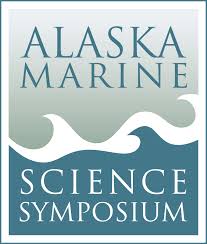
Alaska Forum on the Environment, February 8-12, 2016 (Anchorage, Alaska, USA). The Alaska Forum on the Environment (AFE) is Alaska's largest statewide gathering of environmental professionals from government agencies, non-profit and for-profit businesses, community leaders, Alaskan youth, conservationists, biologists and community elders. The diversity of attendees and comprehensive agenda sets this conference apart from any other. Each year there are over 80 technical breakout sessions and sensational Keynote Events. There will be a full week of sessions on climate change, energy, environmental regulations, cleanup and remediation, fish & wildlife, solid waste, and more.
5th Annual Fletcher Opening Arctic Conference, March 12, 2016. The Opening Arctic Conference builds on the Fletcher School's Warming Arctic International Inquiry series, to bring together high-level thought leaders from across disciplines, Fletcher's hallmark. Staged annually, Fletcher's event continues to address the foreign policy, economic, environmental and security implications of the opening Arctic, while dispelling myths.
Alaska Rural Energy Conference, April 26-28, 2016 (Fairbanks, Alaska, USA). The Alaska Rural Energy Conference is a three day event offering a large variety of technical sessions covering new and ongoing energy projects in Alaska, as well as new technologies and needs for Alaska's remote communities. Building on the growing success, the Alaska Energy Authority and the Alaska Center for Energy and Power have joined forces again to organize and sponsor the 10th annual Alaska Rural Energy Conference.
14th IATS Seminar, June 19-25, 2016 (Bergen, Norway). The University of Bergen (UiB) is honored to host the 14th IATS Seminar in Bergen, Norway, from Sunday 19 to Saturday 25 June 2016 in co-operation with the Network for University Co-operation Tibet-Norway, an academic network with the universities of Oslo, Bergen and Tromsø as partners. The convenor is Professor Hanna Havnevik, Department of Culture Studies and Oriental Languages, University of Oslo, and Chair of the Network.
Inuit traditions are a repository of Inuit culture and a primary expression of Inuit identity. The theme for the 2016 Inuit Studies Conference invites Elders, knowledge-bearers, researchers, artists, policy-makers, students and others to engage in conversations about the many ways in which traditions shape understanding, while registering social and cultural change. The institutional hosts of "Inuit Traditions," Memorial University of Newfoundland and the Nunatsiavut Government, invite you to contribute to an exchange of knowledge to be held in St. John's, Newfoundland and Labrador, October 7-10, 2016. Presentations on all aspects of Inuit studies will be welcome.
|
|

  
4350 N. Fairfax Drive, Suite 510
Arlington, VA 22203, USA
External links in this publication, and on the USARC's World Wide Web site ( www.arctic.gov) do not constitute endorsement by the US Arctic Research Commission of external Web sites or the information, products or services contained therein. For other than authorized activities, the USARC does not exercise any editorial control over the information you may find at these locations. These links are provided consistent with the stated purpose of this newsletter and the USARC Web site.
|
|
|
|
|
|
|
|
|